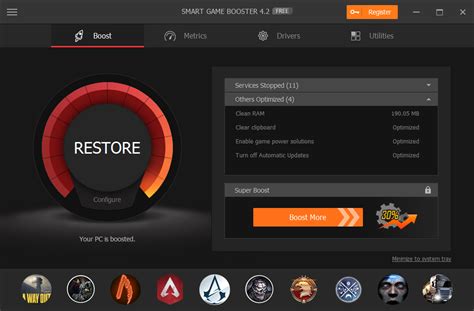7 Youth Ministry Games

Youth ministry games are an essential component of any successful youth program, offering a unique opportunity for young people to bond, learn, and grow in a fun and engaging environment. These activities are designed to cater to the diverse interests and energy levels of teenagers, helping to foster a sense of community and teamwork. In this article, we will explore seven youth ministry games that are both entertaining and spiritually enriching, providing a valuable resource for youth leaders and ministers seeking to create a dynamic and inclusive program.
Introduction to Youth Ministry Games

Effective youth ministry games serve as more than just a form of entertainment; they are a tool for teaching valuable life lessons, promoting teamwork, and encouraging spiritual growth. By incorporating games into their programs, youth ministers can create a welcoming and engaging atmosphere that appeals to a wide range of young people. Whether the goal is to teach a specific biblical lesson, promote unity among group members, or simply provide a fun outlet for energy and creativity, there are countless games that can be adapted to meet the needs of any youth ministry program.
Key Points
- Youth ministry games can be used to teach biblical lessons and promote spiritual growth.
- Games can help foster a sense of community and teamwork among young people.
- There are numerous games that can be adapted to meet the specific needs and goals of any youth ministry program.
- Effective games can cater to diverse interests and energy levels, ensuring inclusivity and engagement.
- Games can provide a valuable tool for youth leaders and ministers seeking to create a dynamic and inclusive program.
Game 1: Human Bingo

Human Bingo is a classic icebreaker game that encourages interaction and teamwork among group members. To play, create bingo cards with different traits, characteristics, or interests in each square (e.g., “has traveled to another country,” “speaks more than one language,” etc.). Each participant must find someone who fits each of the characteristics and get them to sign the corresponding square. This game is an excellent way to help young people get to know one another and can be adapted to focus on specific themes or topics relevant to the youth ministry program.
Variations and Applications
Human Bingo can be modified to suit different ages and group sizes. For smaller groups, the bingo cards can be simplified, while larger groups may require more complex cards with additional characteristics. This game can also be used as a tool for teaching about diversity, inclusivity, and the importance of community, aligning with key principles of youth ministry.
Game 2: The Human Knot
The Human Knot is another engaging activity that promotes teamwork and problem-solving. To play, have the group stand in a circle and put their hands in the center. Each participant should grab the hand of someone across from them, not next to them. The goal is for the group to work together to untangle themselves without letting go of each other’s hands. This game encourages communication, trust, and cooperation, making it an excellent addition to any youth ministry program.
Teamwork and Trust
The Human Knot game is particularly useful for teaching the value of teamwork and trust. By requiring participants to work together and rely on one another to achieve a common goal, this game helps build strong relationships and fosters a sense of unity among group members. It can be used to illustrate biblical principles related to community and mutual support.
Game 3: Scavenger Hunt
A scavenger hunt is a fun and interactive way to engage young people in their surroundings and encourage teamwork. This game can be adapted to fit various themes or goals, such as a nature scavenger hunt to teach about creation and stewardship, or a Bible-themed hunt to reinforce knowledge of scripture. Participants can work in teams to find and collect items on the list, promoting collaboration and problem-solving skills.
| Scavenger Hunt Theme | Example Items to Find |
|---|---|
| Nature | Leaf from a specific tree, bird feather, unique rock |
| Bible Knowledge | Verses related to love, forgiveness, or faith, pictures representing biblical stories |

Game 4: Capture the Flag

Capture the Flag is a classic outdoor game that encourages physical activity, strategy, and teamwork. Divide the group into two teams, each with its own flag that they must defend and try to capture from the opposing team. This game can be played in a variety of settings, from open fields to woodland areas, and can be adapted to include spiritual elements, such as prayers before the game or discussions about sportsmanship and fair play afterwards.
Physical Activity and Strategy
Capture the Flag is an excellent way to promote physical activity and healthy competition among young people. The strategic element of the game encourages participants to think critically and work together to achieve their objectives, skills that are valuable both on and off the playing field. By incorporating this game into a youth ministry program, leaders can help young people develop important life skills while having fun.
Game 5: Praise Charades
Praise Charades is a fun twist on the classic game of charades, focusing on Christian music and worship. Write down the titles of popular Christian songs on slips of paper, and have participants take turns acting out the song without singing or speaking. Their teammates must guess the song title. This game can help young people become more familiar with Christian music and encourage them to think creatively about worship and praise.
Worship and Creativity
Praise Charades is a unique way to engage young people in worship and encourage creativity. By using music as a focal point, this game can help participants connect with their faith on a deeper level and explore different forms of worship. It can also serve as a tool for teaching about the importance of music in Christian tradition and its role in expressing faith and spirituality.
Game 6: Mission Impossible
Mission Impossible is a challenging and exciting game that requires teamwork, problem-solving, and communication. Divide the group into teams and set up an obstacle course or a series of challenges that each team must complete. The twist is that each team member has a specific “mission” or role that they must fulfill during the challenge, such as being blindfolded or having to give instructions without speaking. This game promotes unity, trust, and creative problem-solving among team members.
Obstacle Course Challenges
The obstacle course for Mission Impossible can be tailored to fit the specific needs and goals of the youth ministry program. Challenges can range from physical obstacles like tunnels and balance beams to mental challenges like puzzles and riddles. The key is to ensure that the challenges are engaging, yet not so difficult that they become discouraging. By adapting the game to the group’s abilities and interests, leaders can create a fun and inclusive experience for all participants.
Game 7: Four Corners
Four Corners is a simple yet engaging game that can be used to teach about decision-making, trust, and community. Designate four corners in a room or outdoor space, each representing a different option or choice (e.g., favorite hobby, preferred music genre, etc.). Play music and have the participants walk around the space. When the music stops, they must quickly move to one of the four corners. The twist is that one or more of the corners might be “out,” and participants in those corners are eliminated. This game can be adapted to fit various themes and can serve as a tool for discussing biblical principles related to choice and consequence.
Decision-Making and Trust
Four Corners offers a unique opportunity to teach young people about decision-making and the importance of trusting in God’s plan. By discussing the choices made during the game and how they relate to real-life situations, leaders can help participants develop a deeper understanding of biblical teachings on wisdom, discernment, and faith.
What is the primary goal of incorporating games into a youth ministry program?
+The primary goal is to create a fun and engaging environment that fosters community, promotes spiritual growth, and teaches valuable life lessons.
How can youth ministry games be adapted to fit different themes or goals?
+Games can be adapted by changing the rules, the setting, or the focus of the activity. For example, a scavenger hunt can be themed around nature, Bible knowledge, or community service, depending on the goals of the program.
What skills do youth ministry games aim to develop in young people?
+Youth ministry games aim to develop a range of skills, including teamwork, problem-solving, communication, trust, and decision-making, alongside promoting physical activity, creativity, and spiritual growth.
In conclusion, youth ministry games offer a powerful tool for engaging young people, promoting spiritual growth, and fostering a sense of community. By incorporating a variety of games into their programs, youth leaders and ministers can create a dynamic and inclusive environment that caters to diverse interests and needs. Whether through icebreaker games, outdoor activities, or worship-focused exercises, the possibilities for using games in youth ministry are endless, limited only by imagination and creativity. As leaders strive to connect with and inspire the next generation, the strategic use of games can play a pivotal role in building a strong, vibrant community of young believers.



